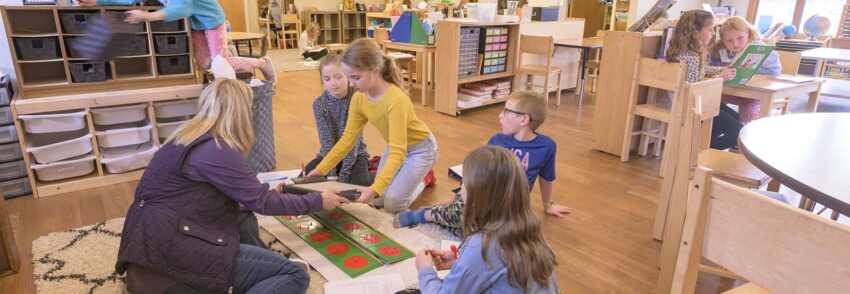International Montessori – Key Principles of Montessori Teaching
The Montessori method of education, developed by Dr. Maria Montessori, has been gaining popularity around the world for its innovative and effective approach. This article explores the success of Montessori teaching and how it has become a breakthrough in education.
The Montessori Approach
The Montessori approach emphasizes a child-centered learning environment where children are given the freedom to explore and learn at their own pace. It respects the individuality of each child and aims to develop their physical, intellectual, and emotional potentials.
Key Principles of Montessori Teaching
-
- Child-centered learning: Montessori classrooms are designed to cater to the needs and interests of each child.
-
- Self-directed learning: Children are encouraged to choose their own activities and work independently.
-
- Multi-age classrooms: Montessori classrooms have mixed-age groups, allowing children to learn from and collaborate with peers of different ages.
-
- Hands-on materials: Montessori materials are specifically designed to promote hands-on learning and sensory exploration.
-
- Freedom within limits: Children have the freedom to explore within a structured and supportive environment.
The Success of Montessori Teaching
Montessori education has gained recognition for its success in nurturing independent, confident, and responsible individuals. Numerous studies have shown the positive impact of Montessori teaching on children’s academic and social development.
Academic Success
Montessori students exhibit strong academic performance due to the personalized learning approach. They develop a love for learning and are motivated to explore various subjects in depth. The hands-on materials and self-directed learning enable children to internalize concepts and develop critical thinking skills.
Social and Emotional Development
The Montessori method fosters a sense of community and cooperation among students. The multi-age classrooms promote peer learning and collaboration, allowing older children to mentor younger ones. This environment enhances social skills, communication, empathy, and respect for others.
Life Skills and Independence
Montessori education places a strong emphasis on practical life skills and independence. Children are taught practical skills such as dressing, cooking, cleaning, and time management. By engaging in these activities, children develop self-discipline, problem-solving skills, and a sense of responsibility.
Conclusion
The success of Montessori teaching can be attributed to its child-centered approach, self-directed learning, multi-age classrooms, and emphasis on hands-on materials. The personalized learning environment nurtures academic excellence, social and emotional development, and life skills in children. Montessori education has truly revolutionized the traditional educational system and continues to shape the future of education.
Nidhin
For More Details Call: +917510220582
